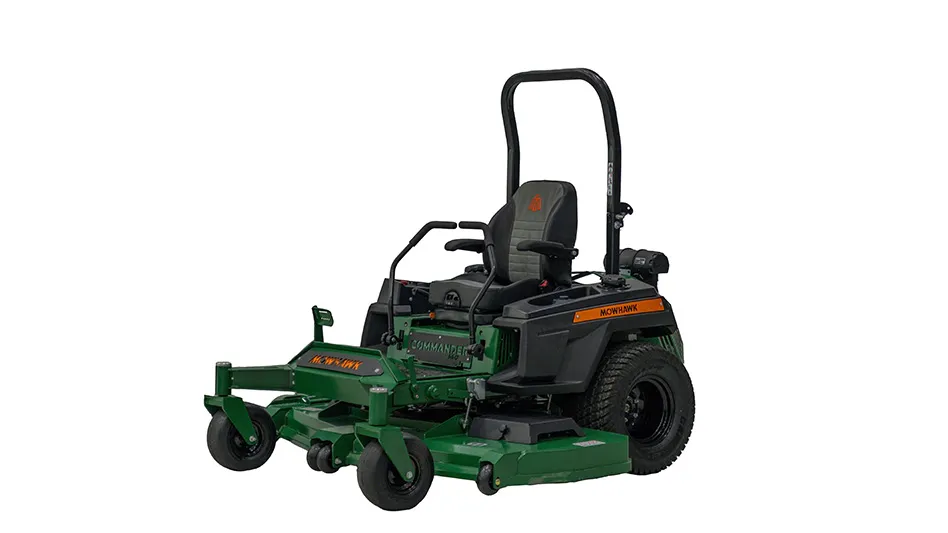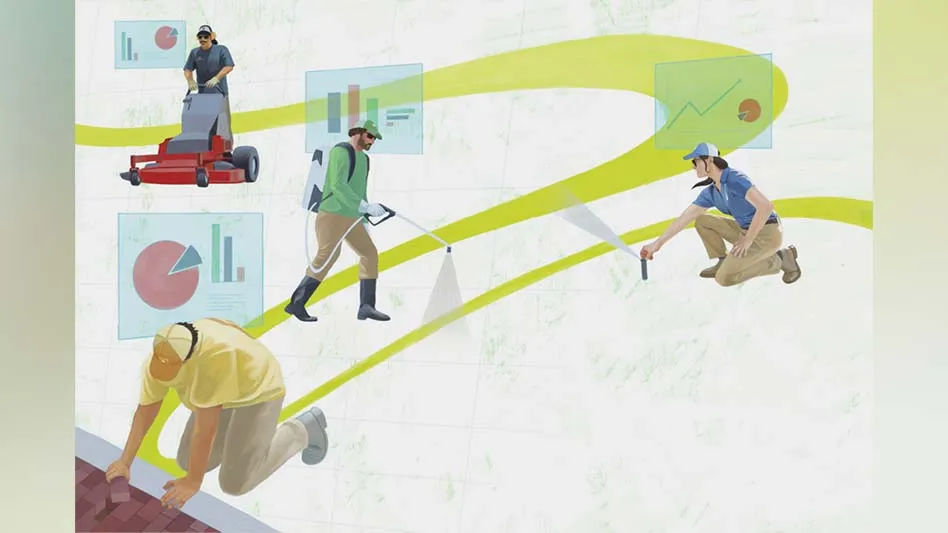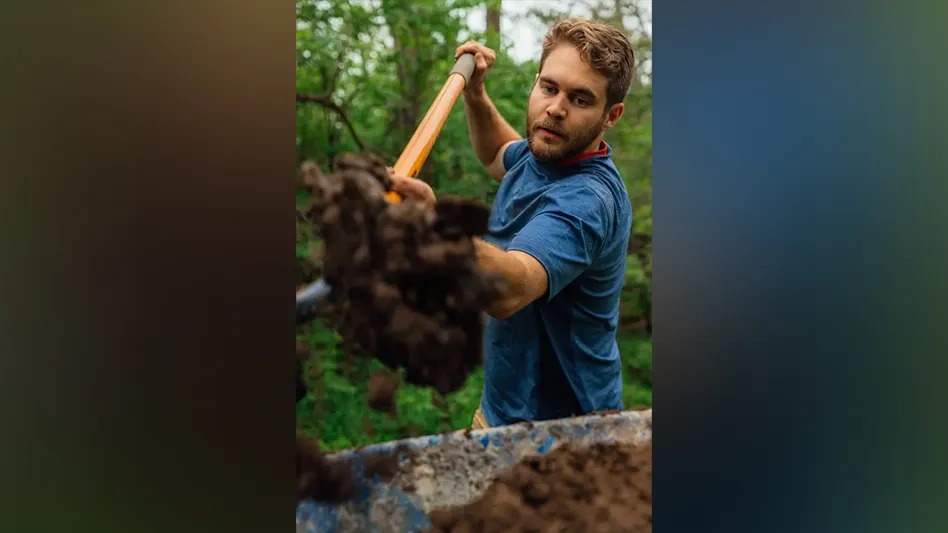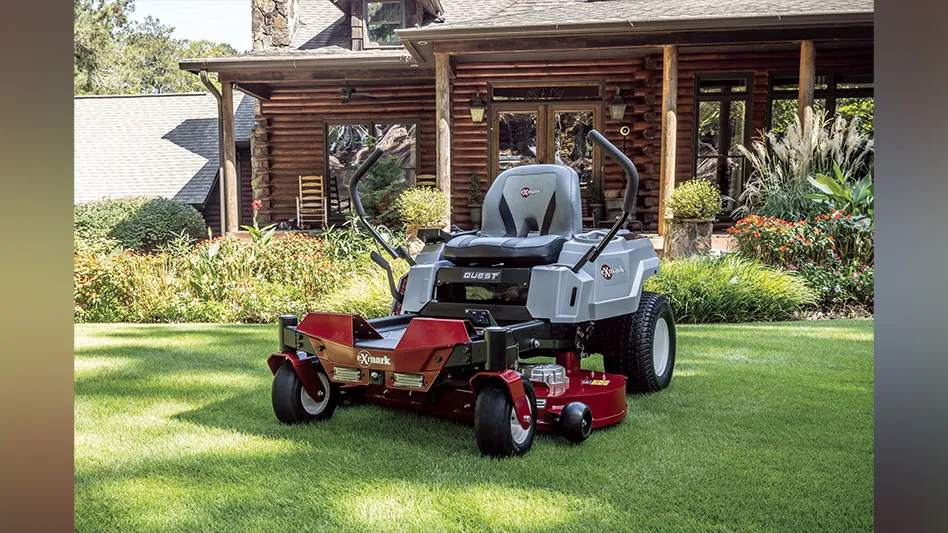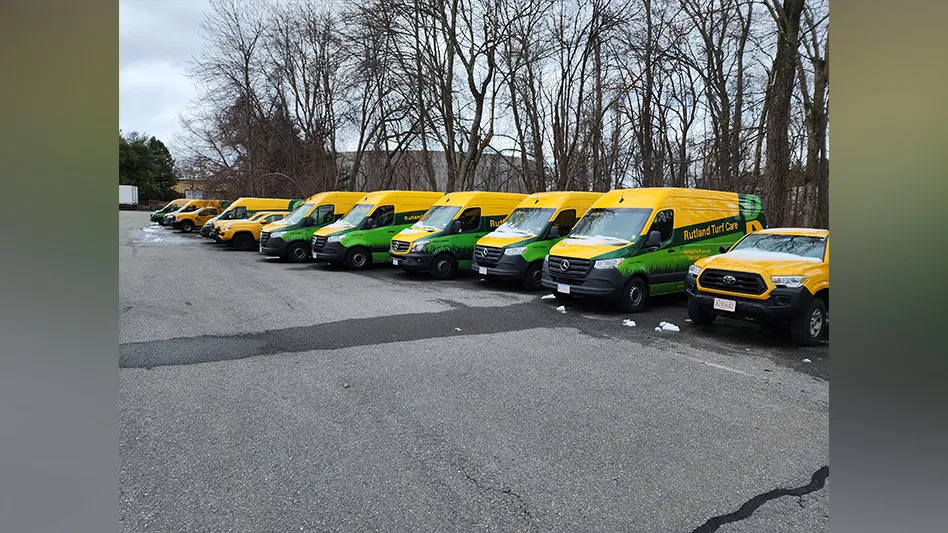
Since coming on board at Rutland Turfcare & Pest Control seven years ago, Kevin Schofield, vice president, has seen the company grow by leaps and bounds.
“They were more of a traditional landscape company who would pick up some lawn care here or there,” he recalls of the Massachusetts-based company. “When I came in in 2017, they had about 120 lawn care accounts for about $150,000. Today, we have over 3,000 lawn care accounts, 800 tick and mosquito accounts, 200-300 tree shrub accounts… and are approaching $3.5 million.”
And that growth is nothing new.
“We’ve had some pretty good growth,” Schofield says. “Even through COVID and all that we were growing 35- to 40% year-over-year.”
The growth is set to continue too, Schofield says the company is expecting another banner season.
“We’re already at about 8% growth for our programs and we haven’t even kicked off the season yet,” he says.
Rutland Turfcare & Pest Control runs three distinct lawn care programs — a traditional program, a hybrid model and an eco-friendly program, which uses organic fertilizers.
“It mainly focuses on the grass itself and the soil and then you couple that with an aeration seeding, so there’s no control products with the eco-friendly program,” Schofield says.
While all three of their programs have their own ideal customer, Schofield says he expects to see the hybrid model pick up speed this season.
“The hybrid is a nice bridge program and that’s gaining quite a bit of momentum,” he says. “We’re probably at 15% of accounts and that’s growing.”
Schofield says he feels customers find it more appealing than the eco-friendly program because it still allows for the use of low-risk control products.
“The eco-friendly program is not really that well sought after,” he says. “Most people are cautious of certain elements when it comes to lawn care — so they go with the hybrid. We only have about 30 to 40 accounts in the eco-friendly program and probably over 500 accounts in the hybrid.”
Rutland offers additional services including traditional and organic tick/mosquito programs, tree and shrub program, a structural pest control program (for ants and spiders and crawling insects), and last year they added interior pest control (for things like mice, rats, cockroaches and bedbugs).
When it comes to the season ahead, Schofield says he’s feeling confident.
“All things right now are looking good for us again,” he says. “I can’t complain. We’re fully staffed. We’ve got 12 lawn technicians, four or five tick and mosquito technicians, a tree and shrub technician and two interior pest technicians.
“Sales are looking great so far,” Schofield adds.
Like in most parts of the country, the start of the lawn care season in Massachusetts is all weather dependent.
“It has been a little cool up here, but it looks like next week will be our breakout week when it’s in the 50s and 60s all week,” Schofield says. “We’re also getting snow today, so you get stuck in that quandary that is the end of March and beginning of April.”
Schofield adds that it’s typically toward the beginning of the season when Rutland gets its most calls from new, potential customers.
“It varies from season to season,” he says. “From the first week of April to the middle of May is where we’re going to capture 55- to 60% of the program sales we’ll make all year.”
However, Schofield notes that special services can also bring in a lot of new revenue at different points in the season.
“We did over $420,000 in aeration seeding last year,” he says. “And we complete that within about a six-week window from September to mid-October.”
